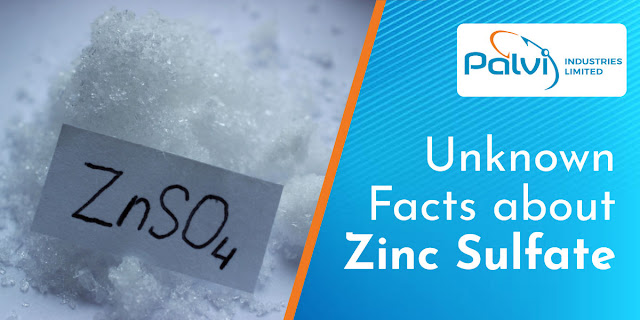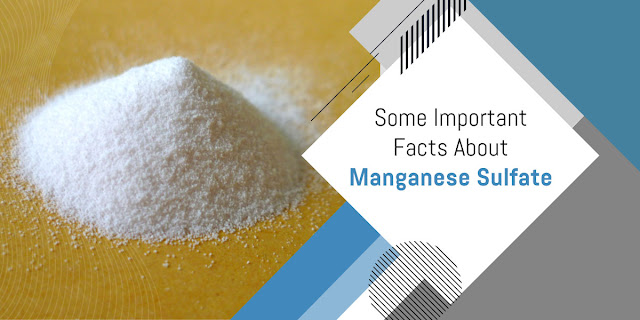Unknown Facts about Zinc Sulfate
Sulfur and zinc are combined in zinc sulphate. It's a
herbicide that's commonly used to get rid of moss. Zinc sulphate toxicity is
determined by the amount of zinc in the product. Zinc is an important nutrient
for humans, animals, and plants. Natural sources of zinc include the
environment, foods, and water.
Working:
In plants, zinc binds to proteins and organic acids.
It inhibits the growth of moss and other plants in high quantities and destroys
the cells, causing them to turn yellow.
Direct Exposure:
If you acquire zinc sulphate on your skin, breathe it
in, or eat a product that contains it, you could be exposed. This can also
happen if you get some on your hands and don't wash them before eating or
smoking. By carefully following all label recommendations, you can keep your
zinc sulphate exposure to a minimum.
Palvi Chemicals is one of the most respected and
prominent Zinc Sulfate exporters in Nigeria.
●
Signs and Symptoms:
Although our bodies require zinc to
function properly, a high quantity of zinc sulphate can cause stomach
discomfort, nausea, bloody diarrhoea, vomiting, and metallic taste. Inhaling
zinc sulphate can induce respiratory irritation, nausea, vomiting, stomach
aches, disorientation, depression, a metallic taste in the mouth, and even death.
The skin can be damaged by skin contact, resulting in ulcers, blisters, and
scars. Zinc sulphate can irritate the eyes severely, causing redness and
inflammation.
Zinc is a vital mineral for both
humans and animals. Too much zinc can induce vomiting, diarrhoea, loss of
appetite, depression, yellowing of the skin, increased heart rate, bloody
urine, and changes in blood chemistry, just as it can in humans.
Entering in the body:
Zinc is a necessary element for the correct
functioning of the human body. To maintain zinc levels, our bodies adapt to
their internal environment. Zinc sulphate enters the body through ingestion,
inhalation, or skin contact and enters the bloodstream. Zinc goes throughout
the body, binds to proteins, and enters various organs once inside.
Zinc is found in the bone, brain, heart, gut, liver,
kidney, lungs, muscle, pancreas, prostate, skin, and stomach, among other
places. Excess zinc is mostly expelled in the faeces, although it can also be
found in urine, perspiration, and skin.
If you are looking for excellent and most popular Zinc
Sulfate suppliers in Ghana, Palvi Chemicals is the right choice for
you.
Uses:
Zinc is a mineral that can be found in nature.
Animals, plants, and soil all contain it. Zinc can be obtained through natural
sources, insecticides, or human activities such as farming, battery
manufacturing, animal feed manufacturing, and metal manufacturing. Zinc is also
utilised in food as a preservative.
Zinc sulphate is an inorganic salt that forms zinc
ions when it dissolves in water. The presence of agents that can bind and
capture zinc, as well as the pH of the water, influence the production of zinc
ions. Zinc is made available to plants and other creatures in soil via its
solubility, which is determined by the pH of the soil. Zinc is considered
stationary in the environment since it binds to a variety of compounds.
Effect on birds, fish, or other wildlife:
Birds are marginally or essentially non-toxic to zinc
salts, whereas freshwater fish and invertebrates are severely hazardous. There
was no information about bee toxicity. Because bees and other pollinators eat
so little plant material, they are unlikely to be harmed.



Comments
Post a Comment